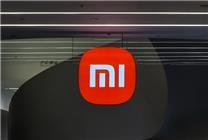Midea’s Strategic Moves Against Xiaomi: A Shift in After-Sales Services
Key Takeaways:
- Midea is reportedly halting collaboration with after-sales services for Xiaomi and Gree products.
- The company perceives a significant threat from Xiaomi’s growing air conditioner sales.
- Improved after-sales support is critical for Xiaomi to stay competitive in the home appliance market.
On November 21, it was reported that Midea has made a controversial decision to stop after-sales services for Xiaomi and Gree air conditioning products. According to domestic media sources, this directive is aimed at limiting partnerships with service providers serving these brands, thereby altering the landscape of after-sales support in the competitive home appliance sector.
Midea’s New Policy
The newly implemented policy requires after-sales service providers to choose between collaborating with Midea or servicing Xiaomi and Gree products. Midea’s regional leaders will communicate these changes directly to their partners across China, focusing on after-sales and installation maintenance primarily for air conditioners.
Although Midea’s public relations claim unawareness of this initiative, it is evident that the company is strategically positioning itself in response to Xiaomi’s market advancements. Multiple Xiaomi dealers have confirmed the shift, pointing out that Midea’s actions are primarily targeted at diminishing Xiaomi’s burgeoning influence in the air conditioning market.
The Motivation Behind Midea’s Decision
This move appears to stem from Midea’s concerns regarding Xiaomi’s impressive sales figures in the air conditioning sector this year. An employee from Midea suggested that this decision reflects the company’s desire to safeguard its market share in a competitive landscape. The policy has reportedly been in the works since October, demonstrating Midea’s proactive approach to counter Xiaomi’s growing presence.
Impact on After-Sales Services
For Xiaomi, the implications of Midea’s policy are profound. Typically, after-sales services in the air conditioning niche involve not only installation but also ongoing maintenance. Xiaomi offers customers the flexibility of choosing between immediate installation or a deferred service model. By restricting the choices of after-sales service providers, Midea’s policy could potentially erode Xiaomi’s binding connections with offline service partners.
However, despite these challenges, there are still third-party service providers that can assist Xiaomi’s customers, provided they operate within reasonable pricing structures. This flexibility might mitigate the impact on after-sales service for Xiaomi, although the long-term effects remain to be seen.
A Tipping Point for Traditional Manufacturers
The recent developments clearly indicate that Xiaomi’s entrance into the air conditioning market is having a notable effect on established manufacturers like Midea. Industry experts are observing that Xiaomi is not merely participating in the home appliance sector but also striving to reshape it. Lu Weibing, a prominent figure at Xiaomi, has expressed the company’s ambition to become a leading brand in China’s major appliance market, targeting a sales scale of 100 billion. He emphasizes that Xiaomi aims to be a contributor to industry growth rather than engaging in destructive pricing wars.
Midea’s Commitment to User Experience
In light of these escalating tensions, Midea has reiterated its commitment to prioritizing user experience. The company publicly stated that it does not impose exclusive partnerships on its after-sales service providers, affirming its flexibility in collaborations. This stance is likely a strategic move to both reassure existing partners and attract potential allies in the market amid rising competition.
Challenges Ahead for Xiaomi
For Xiaomi, developing a robust after-sales service infrastructure will be crucial now more than ever. Midea employees convey that Xiaomi may find itself significantly challenged, given that its after-sales system remains less developed compared to its competitors. With the rapid increase in air conditioner sales, how Xiaomi responds to this pressure will be a key factor in its long-term success in the home appliance landscape.
Conclusion
Midea’s recent policy shift marks a significant evolution in after-sales support dynamics for air conditioning products in China. As the competition between traditional manufacturers and emerging players like Xiaomi intensifies, the industry will need to adapt continually. Companies that prioritize customer experience and invest in their after-sales service will likely emerge as winners in this changing marketplace.
In summary, Midea’s strategic move to halt after-sales services for Xiaomi and Gree reveals a growing concern regarding shifting market power dynamics. Xiaomi must navigate this challenge tactfully to maintain its competitive edge in the rapidly growing air conditioning sector.







